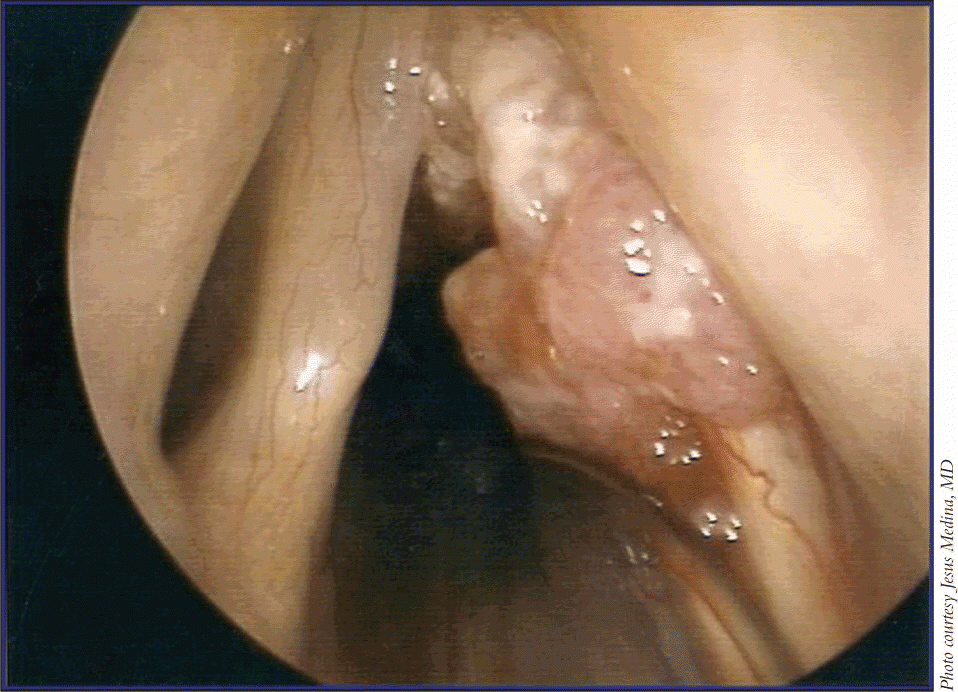
Explore This Issue
March 2009Dr. Mendenhall said he wasn’t worried much about the anterior commissure. He said that at his institution they had just reviewed about 500 cases of a similar nature and that I didn’t see any adverse effect of anterior commissure involvement.
Dr. Kraus said he’d opt for radiation therapy but issued a caveat. I think radiation therapy is the right treatment in this patient. I think the issue, though, is adequate staging, he said. A lot of patients that I end up seeing being referred from the outside who’ve been treated at other institutions who have a recurrence three or four months post-radiation because radiation ‘didn’t work’ with large, bulky subglottic tumors are vivid examples like this patient. The patient wasn’t adequately staged and wasn’t adequately treated to begin with. I think in tertiary centers where patients are appropriately evaluated, appropriately treated, they do well. But I think a lot of the early failures that we see are a consequence of these patients not being appropriately staged.
Dr. Eisele mentioned several options. I think he’s a candidate for an open partial procedure, he said. The major concern I have is the extent of the subglottic extension, but I think he’s a candidate for frontolateral hemilaryngectomy or a supracricoid laryngectomy.
 I counsel the patient that there’s probably going to be more than one surgery in store for them because if we do expose the cartilage, which we may need to do to get down to the perichondrium, there are going to be some healing problems after our endoscopic resection.
I counsel the patient that there’s probably going to be more than one surgery in store for them because if we do expose the cartilage, which we may need to do to get down to the perichondrium, there are going to be some healing problems after our endoscopic resection.
-Henry Hoffman, MD
But ultimately, he said, I think from a functional standpoint, he’s better served with radiation therapy.
Asked to present options beyond radiation therapy, Dr. Brasnu said that, given that it is a very limited subglottic extension, he would perform either an open procedure or maybe, maybe an endoscopic procedure involving removal of the cricothyroid membrane down to the cricoid arch.
Dr. Medina asked him, Does that bring about any problems? When you have to resect the cricothyroid membrane, would you get more subcutaneous emphysema in those patients?
Dr. Brasnu said, It’s not a major problem, and added, If I would do a resection, I would discuss post-op radiation afterward.
Leave a Reply